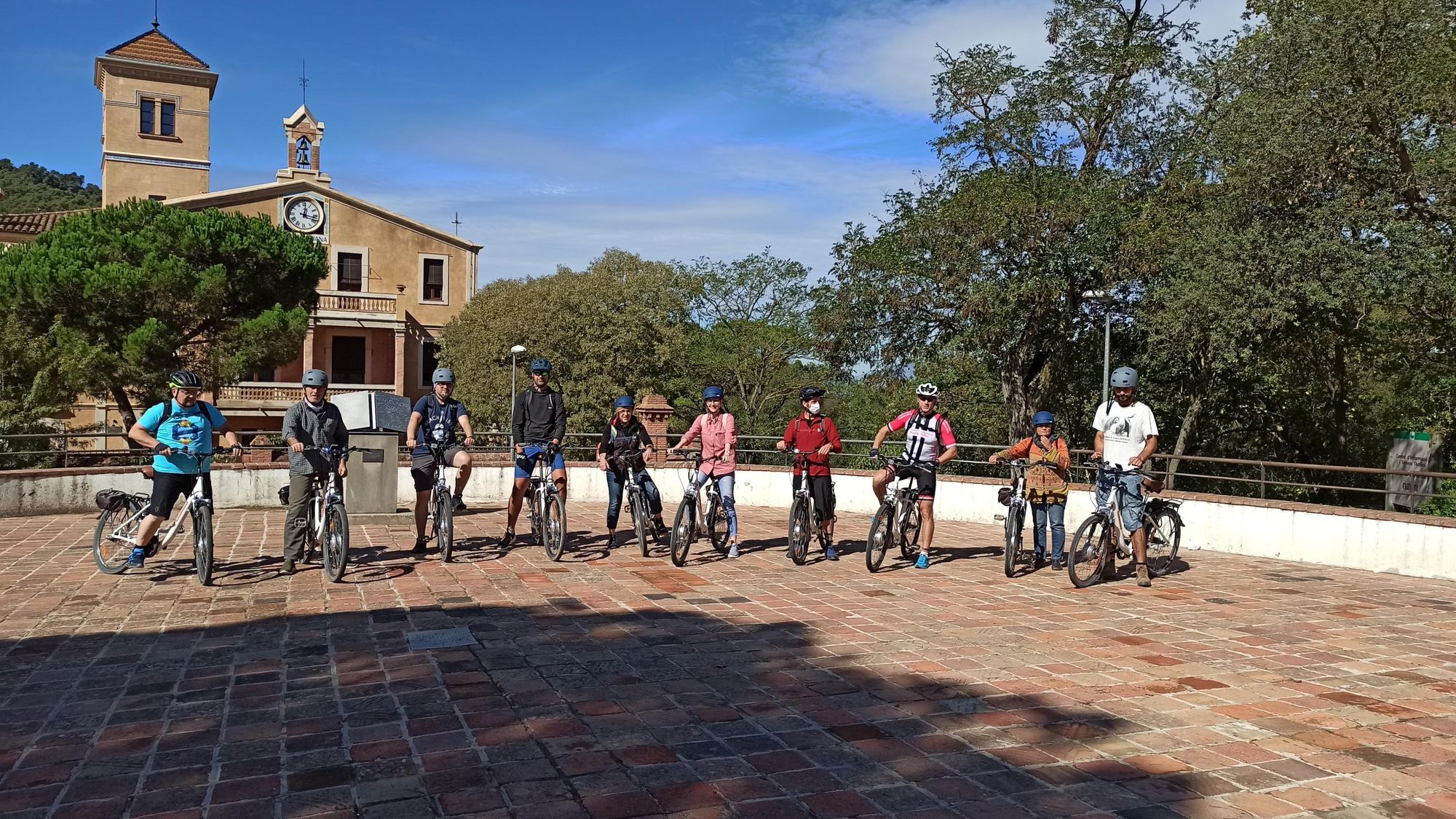
EuroVelo & Cycling Tourism Conference
The ‘ECO-CICLE’ project aims to improve natural and cultural heritage policies by creating a European network for the promotion of cycle tourism in natural area
Cycling is a European success story tells the first heading of the Declaration on Cycling as a climate friendly Transport Mode. Over the last decade, cycletourism has increased exponentially in Europe, both in terms of infrastructure & service and public attendance. The cycling tourism industry generates an annual turnover of €44bn. It represents nowadays a strategic priority for many territories in Europe mostly due to its potential for attracting addedvalue tourism.
Cycle-tourism has clearly taken substantial advantage from the extended urban mobility developments based on bicycle. New populations of cyclists are claiming for new experiences brought by new models of sustainable tourism. This is also extremely challenging for territorial management and landuse planning since Cycletourism represents a powerful opportunity to provide infrastructures and create services and employments in remote areas. In that sense, natural heritage could deeply benefit of cycletourism.
Many territories in Europe are characterized by extended natural heritage in which growth is always subordinated to the strict evaluation regarding preservation of biodiversity and ecosystems at risk. We remind that the EU2020 strategy fostering sustainable environmental development and an efficient use of resources is mandatory for taking off green and competitive economy. Therefore, ECOCICLE aims that bicycle becomes the official sustainable transport to access natural heritage while fostering endogenous economical revival through a popular modality of tourism. In order to determine the best conditions to develop cycletourism in natural heritage context,
ECOCICLE builds on the experience of the partnership, especially on our advisory partner ECF. Main objective of ECOCICLE is to improve operational programs and regional development policies to allocate SF and other investments funds (about 9M€ is targeted through 24 new projects) in infrastructure and support to cycletourism service providers.
€1,332,795.00
Environment and resource efficiency
The strategy of the ERDF ROP 2014-2020 in Andalusia is to contribute to the implementation of the strategic priorities of the European Regional Policy for Economic Development and Cohesion Policy. Policy instrument Axis 4 - TO6 focuses on protecting the environment and promoting resource efficiency while Specific objective OE.6.3.2 is based on protection, development and promotion of natural areas, especially those of touristic interests. ROP for Andalusia is entitled to fund action contributing to the local development through the valorization of natural heritage by the tourism sector as wealth supplier and combined with environmental sustainability.
On the other side, bicycle is first thought as sustainable mobility driving element and mostly for urban environment, but it can also play an important role as catalyzer for sustainable touristic activities in natural protected areas. In this sense Andalusia count on a wide network of paths with different origins (rural paths, former rail tracks, cattle tracks etc) which allows to travel by bike around its territory, bringing new opportunities for employment in rural areas. This resource needs to be exploited in a determined basis to ensure its contribution to local development, drafting a coherent plan its optimization, avoiding funds dissemination in local projects unconnected and without a common strategy and approach.
ROP K-PV 2014-2020 consists of 11 priority axes directly related to the regional Strategy of Development 2020 +, which is the fundamental regional policy instrument.ROP K-PV is the financial instrument for the Strategy implementation.72 % of the structural funds of ROP K-PV come from ERDF.The most relevant for the project is priority Axis 4 ”Environmentaly friendly region”, action 4.5 ”Environmental protection”, specific objective 5 ”Enhanced mechanism of biodiversityprotection in the region”. The objective 5 embraces (among others) the development and improvement of mobility sustainable development of the environmentally valuable areas.Realization of the investment priority will improve preservation of the natural areas through maintaining of biodiversity and at the same time enhancing of regional and local potential based on natural resources. The adverse transformation, degradation and fragmentation of natural sites, extensive exploitation of natural resources will be inhibited. The uncontrolled exploitation of valuable natural areas will be limited through targeting of tourist movement and by giving priority to cycling tourism. Such approach should enhance better protection of natural resources as well as increase the tourism attractiveness of these areas. According to the priorities and actions described in the document the beneficiaries are enabled to work on tourism infrastructure, including cycling infrastructure in environmentally valuable areas.
The Charta is the future development strategy of the LeipzigerNewlakeland until the year 2030. The Lakeland is a region in transformation, build up by flooding former mining pits and a huge lake area with 19 lakes is now emerged. It describes a common quality agreement of all relevant players in the Newlakeland for a sustainable development of the whole area. 9 thematic statements were elaborated: - develop waterbodies in harmony with people and nature - put a grown new landscape in value - diversify recreational activities - allow sports anyone – from mass sports to top performance - cultural activities at the Lakeland - livable Lakeland; realize high quality architecture in the landscaping process - communicating Lakeland; ensure a broad participation and engagement process of the public - improve mobilityat the Lakeland; make the various location accessable without car for everyone through e.g. the expansion of cycling infrastructure, E-bikes, multimodal mobility concepts, rental stations for bikes, better public transport - preserve unique natural landscape and enable everyone to experience it
Reasons for improvement: By strengthening cycle tourism in the area both last mentioned aims can be reached as it improves the accessibility and ensures conservation at the same time. The fast growing sector of E-Bikes is a great possibility, especially for older target groups. New concepts e.g. for charging infrastructure have to be further developed and included in the strategy.
OP is a centralized programme defining a set of measures to receive support from the European Investment and Structural Funds. The measures were designed taking into account the Europe 2020 Strategy targets and Partnership Agreement of Slovenia 2014-2020. OP covers 11 thematic objectives. ECO-CICLE objective is consistent with OP investment priorities - IP on « Protecting and restoring biodiversity and soil and promoting ecosystem services, including through NATURA 2000, and green infrastructure » under TO 6 - Preserving and protecting the environment and promoting resource efficiency. IP will support the delivery of green infrastructure in significant nature protection areas, giving priority to Natura 2000 sites.
IMPROVEMENT: Project integrated actions will establish synergies with cultural heritage protection, tourism and agriculture and will be implemented as provision of high-quality interpretation of arranged natural protection areas. This will include action plans for publically accessible cycling trails, with emphasis on awareness-raising about the significance of preserving nature, cultural heritage and landscape without causing negative impacts on achieving the nature conservation objectives, while creating conditions for sustainable mobility of visitors. Policy improvements address the development of systematic solutions and new approaches aiming to foster the integration of key stakeholders under innovative cycle tourism.
PACT is a policy instrument strictly connected to ERDF goals and compatible with cyclotourism through Priority Axis 5 - Environment protection and efficient use of resources and Specific Objective 6C.6.6 - Improving the conditions and standards of supply and enjoyment of heritage in areas of natural attraction. ECO-CICLE is targeting the following Actions:
• 6C.6.6.1 Interventions for the protection and enhancement of strategic natural areas to consolidate and promote development processes: to foster inclusion in national and international circuits of knowledge, protection and sustainable and eco-compatible use Of the natural and landscape resources of the protected areas belonging to Natura 2000 Network and qualifiable as major natural attractors.
• 6C.6.6.2 - Support the diffusion of knowledge and the enjoyment of natural heritage through the creation of innovative services and/or systems and the use of advanced technologies: information and communication activities, territorial marketing, ICT applications, etc.
• 6C.6.8.3 - Support for the integrated use of cultural and natural resources and the promotion of tourist destinations: in accordance with the Regional Tourist Plan eand the Regional Transport Plan, to elevate the tourist value through increase their attractive potential and enhancing their competitive performance.
Improvements of PACT match with the cycling program planning process started by Basilicata Region which will be enriched by ECO-CICLE Good practices.

The ‘ECO-CICLE’ project aims to improve natural and cultural heritage policies by creating a European network for the promotion of cycle tourism in natural area
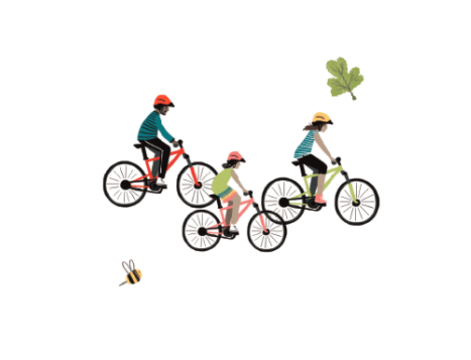
This action plan is the main result of Nova Gorica within the Interreg Europe project ECO-CICLE.
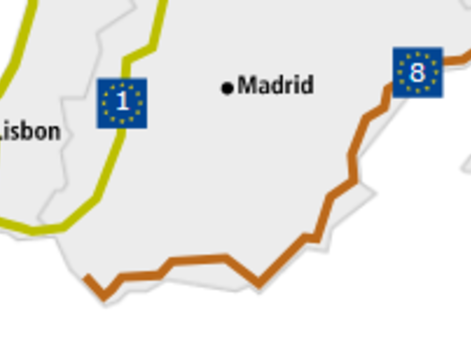
This action plan is the main result of Junta de Andalucía within the Interreg Europe project ECO-CICLE.
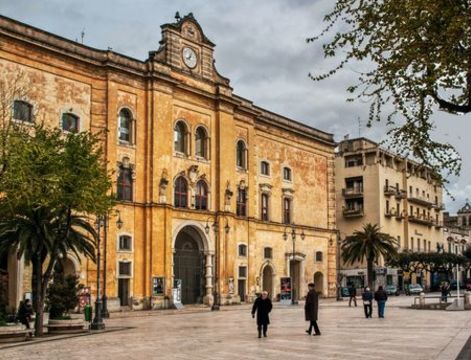
This action plan is the main result of the Basilicata Region within the Interreg Europe project ECO-CICLE.
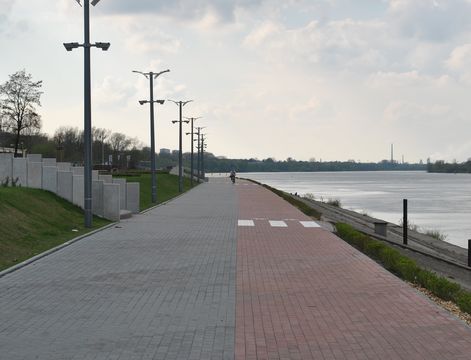
This action plan is the main result of the Kujawsko-Pomorskie Region within the Interreg Europe project ECO-CICLE.
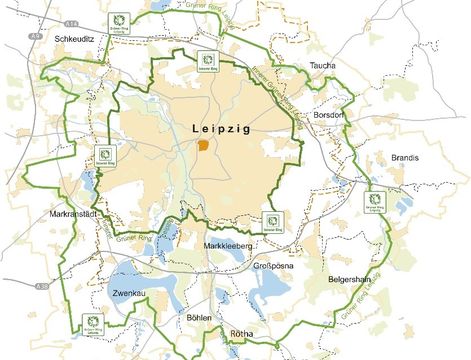
This action plan is the main result of Aufbauwerk Region Leipzig GmbH (Aufbauwerk) within the Interreg Europe project ECO-CICLE.
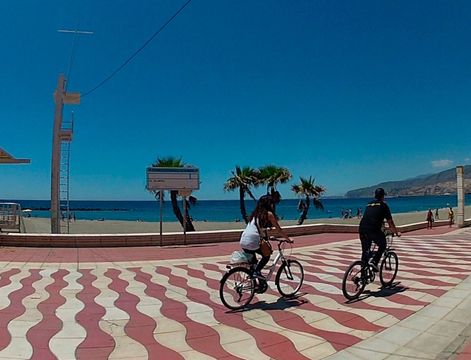
The Regional Government of Andalusia (Spain) releases a good practices catalogue of actions about cycle tourism.
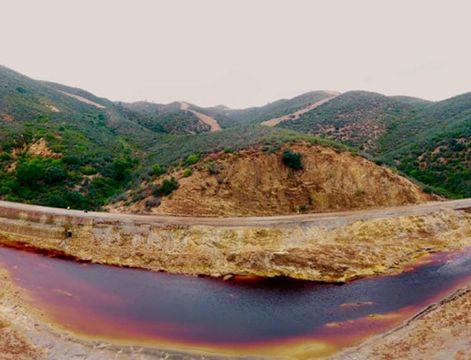
Care for protected areas and heritage sites located along new cycle routes, also helping with recovery after degradation where necessary.
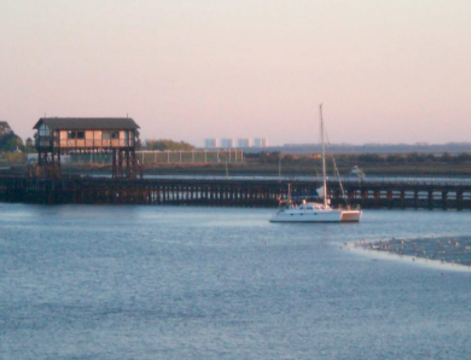
Care for protected areas and heritage sites located along new cycle routes, also helping with recovery after degradation where necessary.
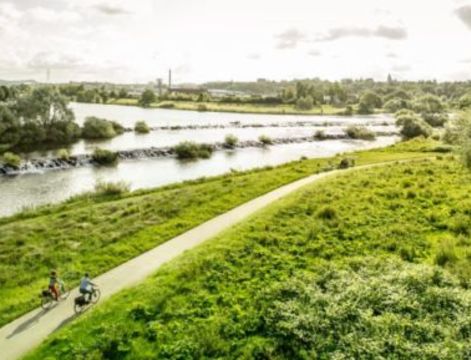
Care for protected areas and heritage sites located along new cycle routes, also helping with recovery after degradation where necessary.